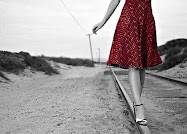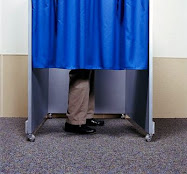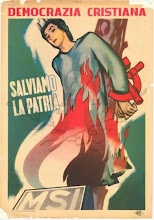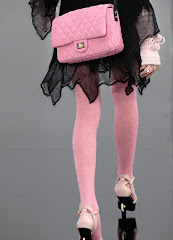
By Alec MacGillis Washington Post Staff Writer Tuesday, November 18, 2008; A02
On the campaign trail, Barack Obama liked to defend himself against charges of inexperience by calling for fresh perspective in Washington. "The American people . . . understand the real gamble is having the same old folks doing the same old things over and over and over again and somehow expecting a different result," he would say to big applause.
But as the president-elect's White House team takes shape, it is becoming clear that Obama in fact sees value in having plenty of the "same old folks" around to help him. After selecting as his chief of staff Rep. Rahm Emanuel, a House power broker and Clinton White House veteran, Obama over the weekend added several other top advisers with deep seasoning in Washington and on Capitol Hill in particular.
Although Obama has shown a fondness for surrounding himself with big thinkers and visionary experts, his White House hires suggest that his West Wing, at least, will place a premium on skilled legislative practitioners.
Congressional Democrats are taking the hires of Hill veterans as an encouraging sign that Obama -- the first member of Congress to be elected president since John F. Kennedy -- plans to work closely with them, which they regard as a welcome change from Bush's administration, which even many Hill Republicans said left them out of the loop.
The staff choices "represent a new era in cooperative relations between the White House and Congress," said Rep. Robert Wexler (D-Fla.). "It bodes well for an extraordinary period of legislative accomplishment -- for creating an atmosphere in which legislative victories will be maximized."
Rep. Debbie Wasserman Schultz (D-Fla.) said the Hill expertise is particularly needed given the shaky economy. "It sends a very clear message . . . that he is ready to work with us from Day One," she said. "We need to get past the 'getting to know you' phase quickly, and this helps get that done."
But some veterans of Republican White Houses are asking how Obama's promise of a clean break with the past squares with his elevation of so many Washington insiders skilled in partisan warfare.
"This is more 'Groundhog Day' than a fresh start," said Peter Wehner, a former senior adviser to Bush who is a fellow at the Ethics and Public Policy Center.
Wehner said he thinks Obama is trying to avoid the mistakes of the Clinton administration, which stumbled early on, but he warned against "overlearning history." "It's reassuring having people who have been around the block -- it means he'll step on fewer banana peels in the early going," he said. But "this just doesn't have the feel of a political transformation," he added.
Other veterans of GOP administrations said Obama could yet prove an agent of change -- on his own.
"The transformative part of his presidency is the president himself," said Douglas W. Kmiec, a Pepperdine University law professor who served in the Reagan and George H.W. Bush administrations and supported Obama. "The most important voice for change is his. And change is accomplished in our system not by erasing all of the lines on paper but by having people who understand government's structure and so can reinforce lines that have been wrongfully distorted or broken in terms of separation of powers."
Obama adviser Anita Dunn made a similar case. "What you're seeing is the same kind of approach he took to his campaign -- some new people, some old people, like Goldilocks," she said. "What you see is someone who is not going to make some of the mistakes administrations have made in the past of not understanding how to get things done in Washington. People who say 'Where's the change?' need only look at the president of the United States . . . the person at the top who sets the tone and the priorities."
The latest hires include Pete Rouse, an understated but highly regarded Hill veteran who will be a senior adviser in the White House after 30 years on the Hill -- 19 working for Thomas A. Daschle, a former Senate Democratic leader, and four as Obama's chief of staff. Hired as deputy White House chiefs of staff are Mona Sutphen, who worked for a D.C. consulting firm after serving on Clinton's National Security Council, and Jim Messina, who was the Obama campaign's chief of staff after serving in the same capacity for Sen. Max Baucus, the Montana Democrat who is helping lead the way on health-care legislation.
Hired as Obama's top congressional liaison is Phil Schiliro, another highly regarded Hill veteran who in 25 years there served as Daschle's policy director and, most recently, as chief of staff to Rep. Henry A. Waxman (D-Calif.), chairman of the House Committee on Oversight and Government Reform. Selected as White House counsel is Greg Craig, who served in the State Department under Clinton and acted as his counsel during his impeachment but broke with the Clintons to endorse Obama.
These experienced Washington hands will be joined by Obama's top confidants from Chicago -- David Axelrod, his chief campaign strategist, and Valerie Jarrett, a businesswoman and close family friend who is helping direct the transition alongside former Clinton chief of staff John D. Podesta. She will serve as Obama's senior adviser and public liaison.
Several White House veterans said the mix represented a healthy combination of new blood and D.C. experience -- not unlike what Ronald Reagan brought in 1980, when he combined Washington hands such as James A. Baker III and Kenneth M. Duberstein with confidantes Edwin Meese III and Michael K. Deaver.
Obama, having collected relatively few loyalists during his rapid rise, has shown an eagerness to hire the best available people regardless of personal connections or ideology, the veterans said. The clearest example was his success persuading Rouse, who was looking for work after Daschle's 2004 defeat, to join the office of a freshman senator.
"Obama understands that in order to be an effective president, you need to win battles on Capitol Hill," said Duberstein, who was Reagan's chief of staff. "What he seems to be putting in place is a mixture of people who know how to get things done in Washington along with people who have known him for many years. That fits with what he has campaigned on . . . which is shrewdly bringing people together. It is all about putting together a pragmatic governing coalition and having the people on hand who know how to get things done."
Duberstein disagreed that Washington veterans undercut the change that the country voted for Nov. 4. "What the American people are saying is: 'Enough of the stalemate and gridlock. Get people in there who know what they are doing,' " he said.
Andrew H. Card Jr., President Bush's first chief of staff, praised Obama for filling so many White House jobs so quickly. But he warned that having so much Hill experience on the team could give it too much of a legislative mind-set.
"A member of Congress holds hearings and healthy debates before he makes a decision. A president doesn't have that luxury," he said. "He is required to make snap decisions. Members of Congress can be much more deliberative, where a president has to be decisive. If you're a senator, you're one-hundredth of one-half of a decision. When you're president, you're 100 percent of a decision. You have to be more nimble."
Leon Panetta, who was Clinton's chief of staff, dismissed this concern. "It doesn't take very long before you develop an executive mind-set. On Capitol Hill you usually have 535 different [bosses], and at the White House you only have one boss -- and you learn that real fast," he said. "I just look at it from the point of view of having people who can hit the ground running. With all the problems the country faces, it makes a hell of a lot more sense to have people who understand how Washington works."



















